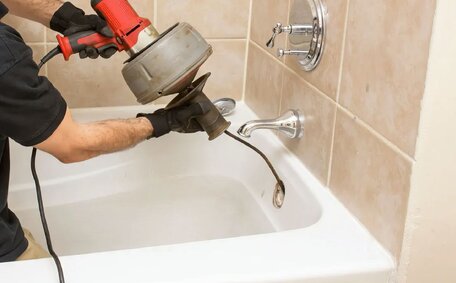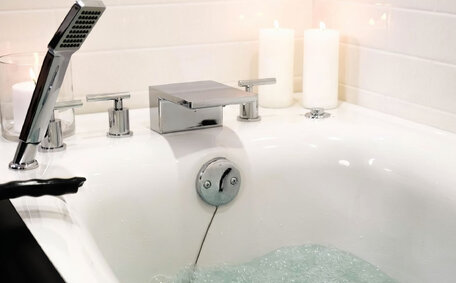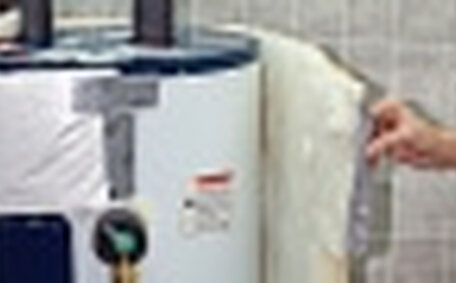Understanding What Causes Burst Pipes
Unaddressed burst pipes can cause extensive water damage. Identifying the root cause is crucial for prevention and effective repair. Common reasons pipes burst include:
- Faulty installation, including unsuitable materials or connection problems
- Ageing infrastructure leading to corrosion or weakness
- Freezing temperatures causing pipes to expand and split
- Excess water pressure building up inside the pipes
- Tree roots growing around and into older sewer lines
As underground pipes age, tree roots can infiltrate small cracks seeking moisture, eventually breaking the pipe. Early detection of minor leaks enables timely pipe replacement, averting major damage.
Determining contributing factors aids in formulating effective solutions. While some pipe issues come down to wear and tear, many bursts stem from controllable factors like temperature regulation or drain maintenance. Knowledge of common failure causes is critical to prevent reoccurrence.
Common Signs of a Burst Pipe
Homeowners noticing signs of a burst pipe may question the costs to rectify the issue, including:
- Discoloured water - Rusty, brown, or muddy-looking water points to a breach allowing sediment inside.
- Fluctuating water pressure - Dramatic spikes and drops in water flow signal a possible rupture.
- Gurgling noises - Bubbling, hissing or dripping sounds coming from inside walls hint at escaping water.
- Higher water bills - A sudden, unexplained rise in costs likely means a hidden leak.
- Soft spots and moisture - Check walls and floors for damp areas or spongy sections.
- Overflowing fixtures - Sinks, tubs or toilets that drain poorly or clog frequently also indicate pipe damage allowing debris buildup.
If any suspicious symptoms arise, Examine exposed pipes for drips or breaks as part of your checks. Early detection of a burst water pipe can markedly lessen the damage and associated costs. Delayed action might lead to structural issues and mould growth, thereby increasing costs.
Immediate Actions When a Pipe Bursts
When a pipe burst occurs, swift action is critical to prevent flooding and minimise harm. Follow these steps immediately:
- Shut off your water supply at the mains to halt further leakage. The stopcock is usually near the water metre.
- Switch off electricity if water nears power points or electrical items to avoid electrocution.
- Limit damage by safely capturing escaping water with towels, buckets, or a wet vacuum.
- Document all affected areas, including water marks, moisture, damaged walls, or debris.
- Clear any blockages so remaining water can drain away rather than pool.)
- Call a professional, licenced plumber immediately to inspect and make repairs.
- Contact your home insurer once safe to report the incident and review your coverage details.)
- Ask the plumber questions — determine why the repair burst pipes is needed, what repairs involve and if longer-term prevention is needed.
Staying calm during a burst water pipe incident helps reduce further complications. Knowing key damage control steps allows you to act decisively if disaster strikes.
Factors Affecting the Cost to Repair or Replace Pipes
The cost to repair or replace burst pipes varies widely due to numerous influencing factors.
Location of the Pipe
The location of the damaged pipe greatly affects repair costs; pipes within floors and walls often require costly structural demolition. Similarly, outdoor pipe fixes underneath gardens or driveways add labour and material costs for excavation and resurfacing.
Extent of Damage
Greater damage can escalate the cost to fix significantly. A small pinhole leak on a copper pipe costs less to patch than a fully split drainage line allowing soil erosion underneath a home’s foundations. Other considerations include age and material too - replacing corroded 50-year old galvanised steel pipes costs more than fixing a relatively new PVC pipe.
Professional Labour Charges
Material Expenses
Pipes themselves aren’t too pricey, but add-ons like water metres, tapware or drainage grates bump up supply costs. Custom fabricated piping for tricky spots also comes at a premium.
As each pipe repair is unique, obtaining an onsite quote from a professional is crucial for accuracy. While even minor fixes often exceed $150, expenses for significant drainage line replacements under properties can spiral beyond $5,000 in some cases.
Estimated Cost Ranges for Burst Pipe Repairs
When an unexpected burst pipe disaster strikes, knowing the potential repair or replacement costs helps ease uncertainty. While professional inspection remains critical for accurate quotes, these ballpark figures offer an initial cost overview for different scenarios:
Minor Copper Pipe Fixes
Small leaks or cracks on copper pipes under sinks or behind walls average $150 - $350 depending on access requirements.
Complete Water Line Replacements
For aged galvanised steel piping, full home pipe repair costs around $4,500 - $8,000 on average. Excavating underdriveways or landscaping adds $2,000+.
Drainage Line Repairs
Clearing a blocked drain starts from $175, but replacing fully collapsed lines beneath foundations or sewer mains connections can exceed $7,000 - $10,000.
Tap and Valve Replacements
Replacing a leaking tap or valve starts from $250. Custom or hard-to-find fittings add $100+.
Various other elements from pipe depth, flooding severity or aesthetic finishes also influence costs. Home insurance may cover portions too, especially if repairs prevent further structural damage. While gas lines can repaired with separate licencing requirements, expenses remain comparable to water line jobs.
Personalised quotes are essential for precision, as seemingly simple tasks can uncover complexities that require more time, equipment, or expertise.
Preventative Measures to Avoid Future Burst Pipes
Preventing burst pipes proactively saves homeowners money and hassle over time. Several maintenance tips help avoid issues:
Insulate Pipes
Exposed pipes risk freezing in cold weather. Insulating copper water pipes maintains warmer temperatures, preventing expansion splits. Professional pipe insulation, known as lagging, costs approximately $250.
Install Flood Sensors
Flood detection sensors, starting at $350, connect to the main water pipe and trigger an alarm to signal leaks, prompting immediate shutoffs. Avoid leaks worsening undetected.
Update Old Pipe Infrastructure
Replacing outdated steel piping with modern polyethylene or PEX piping reduces corrosion risks. While initial costs start at $5,000, new pipes have a lifespan of over 50 years.
Clear Tree Roots
Cutting tree roots every 3-5 years prevents them from obstructing sewer lines. For minor root intrusions, DIY drain augers are effective, whereas plumbers charge from $350 for chemical treatments in offline pipes.
Annual Plumbing Check-Ups
Annual inspections can identify issues early, reducing the expense of repairing potential critical failures. Checks average $200, including tests confirming appropriate water pressure levels.
Install Pressure Reducing Valves
Excess water pressure strains pipes over time. Pressure relief valves, costing approximately $450 for supply and fit, maintain the system at a safe 50 to 60 PSI.
An ounce of prevention certainly outweighs the pound of cure when it comes to plumbing disasters. Proactive maintenance can significantly extend a pipe’s functional lifespan, despite their finite durability.
Hiring a Professional Plumber for Assessment and Repairs
When burst pipes or other plumbing emergencies strike, hiring a professional, licenced plumber is strongly advised over attempting DIY fixes. Experts like those from Marrickville Plumbing bring extensive training and expertise assessing situations accurately to develop robust, long-term solutions.
Enlisting professional plumbers offers benefits such as:
- Pinpointing exactly why leaks or blockages occurred, preventing repeat issues
- Safely shutting off water/gas supplies before commencing work
- Using specialised tools that the average homeowner does not have for inspections and repairs
- Providing complete solutions - plumbers fix underlying problems rather than applying quick band-aid fixes
- Conforming fully to strict industry regulations around materials, methods and testing
- Cleaning up properly after jobs, taking away debris so homeowners avoid added mess
- Offering warranties against defects for peace of mind
While DIY fixes may save money upfront, they can lead to larger problems if repairs are not up to standard. Hidden dangers also exist striking pipes or wires accidentally. Always exercise caution.
For guaranteed quality outcomes protecting homes, enlist trusted local specialists like Marrickville Plumbing. Their team promptly assesses any plumbing problems big or small, recommending cost-effective solutions to return things to normal.
Contacting Our Team for Urgent Plumbing Issues
When plumbing catastrophes hit, getting professional help swiftly curtails damage. The licenced experts at Marrickville Plumbing provide emergency support 24/7 for burst pipes, leaks, overflowing cisterns, gas problems and more throughout the Sydney suburbs.
As a local family-owned business serving the community for over 10 years, our team lives and works in the area. This ensures our average response time is under 30 minutes in the event of a disaster. Familiarity with regional infrastructure proves useful too - leveraging intimate knowledge of older buildings and troublesome pipe networks to strategise durable solutions.
email.
Rely on local experts to quickly resolve plumbing crises.






